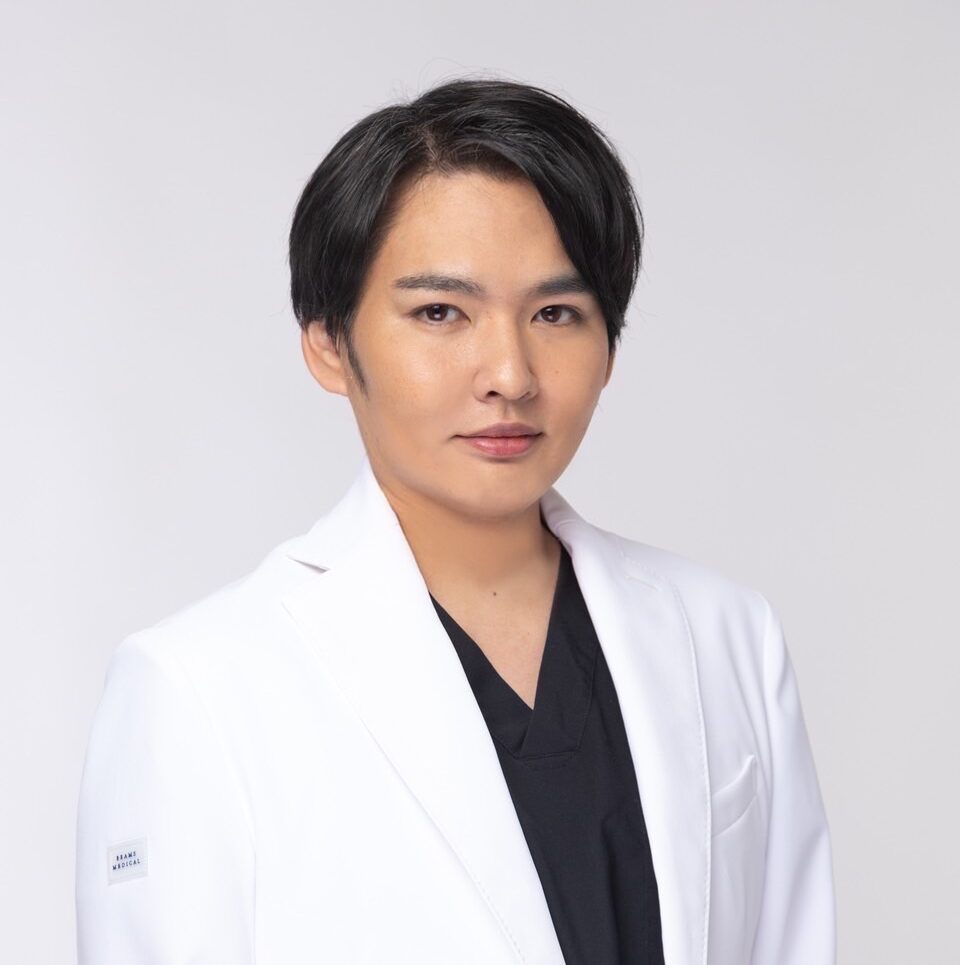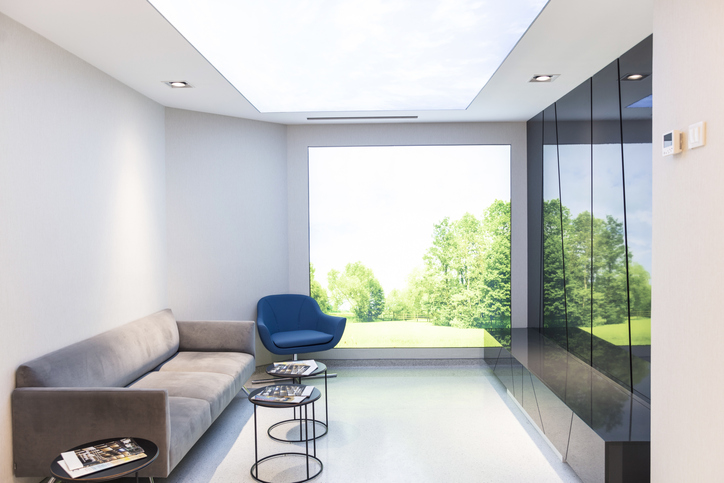Beauty is not age-related and lasts forever. However, as we age, our appearance changes. In particular, the shape of the nose, the central part of the face, has a significant impact on our confidence and impression. Here we will explore in detail how rhinoplasty surgery can affect your cosmetic practice in old age, its long-term effects, and how to prepare for old age.

Graduated from the Faculty of Medicine, National Kumamoto University. After serving as the director of major beauty clinics in Japan, etc., he opened Aladdin Aesthetic Clinic in 2023. He is a professional in aesthetic medicine with a doctorate in anti-aging research and many years of experience. With the motto of "Toward the realization of cosmetic medicine without lies," he aims to be the "Only One" together with his patients.
Types and Processes of Rhinoplasty Surgery

The pursuit of beauty is an important part of life for many people. Rhinoplasty surgery can significantly change the overall impression of the nose by altering its shape, which is located in the center of the face.
There are many different types of this surgery, each with a specific purpose. For example, there is G-mesh to improve nasal alignment, rhinoplasty to reshape the tip of the nose, and nose reduction to improve the nostrils. These surgeries may contribute not only to a more pleasing appearance, but also to improved breathing and confidence.
What is the rhinoplasty surgery process?
The rhinoplasty surgery process is a very important part of the patient's life. First, a consultation is conducted to understand the patient's desires and current condition. Next, a detailed analysis of the patient's facial shape and nasal structure is performed to develop the optimal surgical plan.
The surgery itself is usually performed under general or local anesthesia and takes only a few hours. After surgery, swelling and internal bleeding are common, but these will improve with time. Proper postoperative care and follow-up are essential for an ideal outcome.
Risks and Expected Results of Rhinoplasty Surgery
When considering rhinoplasty surgery, it is important to understand the risks and expected results. Common risks associated with surgery include infection, bleeding, or possible complications from anesthesia. In addition, the results of surgery vary from person to person and may not meet your expectations.
However, proper selection of the right doctor and clinic can minimize the risks and increase the likelihood of achieving the natural, balanced appearance that the patient desires. It is important to fully discuss the expected results during the preoperative consultation and to have realistic expectations.
Rhinoplasty and Cosmetic Medicine in Aging
When considering rhinoplasty as a cosmetic procedure in old age, some special considerations must be made. The skin of the elderly may be less elastic and recover more slowly than that of younger people.
It is also important that the surgical plan take into account age-related skin changes and overall facial balance. When undergoing rhinoplasty in old age, the goal of surgery should focus not only on improving appearance, but also on improving breathing and quality of life.
What effect will a rhinoplasty have in old age? The Long-Term Consequences

A beautiful appearance changes over time. Rhinoplasty surgery has the potential to provide long-lasting confidence and satisfaction by altering the shape of the nose, the center of the face. However, the effectiveness of surgery depends on the individual and may change with age and lifestyle. In the long term, the skin of the nose may gradually lose its elasticity and the contour and shape of the nose may change.
When considering the impact of rhinoplasty surgery in old age, it is most important to understand the interaction between the aging process and surgical effects. As we age, the skin loses elasticity and is more prone to sagging and wrinkling. These changes can also affect the shape of the nose, gradually altering the ideal result achieved by surgery.
Risk of shape change after rhinoplasty
Of particular note is the possibility that the shape of the nose may change over time after surgery. For example, the position of the nasal apex may be lowered, the nasal contour may become indistinct, and other changes may occur.
These changes are due to skin aging, the effects of gravity, and the natural recovery process of tissues after surgery.
Durability of effect and possibility of reoperation
The results of rhinoplasty surgery are not permanent and may require revision over time. The likelihood that the effectiveness of the surgery will diminish increases, especially in old age. When considering revision surgery, the unique risks and resilience of the elderly should be considered. Reoperation is often more technically challenging than the initial surgery and requires careful planning and expert advice.
In addition, comprehensive risk management and adjustment of expectations are essential when considering rhinoplasty surgery in old age. In older patients, there may be increased risks associated with surgery. These include prolonged recovery time after surgery, increased risk of infection, and impact on other health issues in the body. It is important to fully understand these risks and have realistic expectations.
Reoperability of rhinoplasty in old age and its criteria
| (data) item | point |
|---|---|
| Evaluation of surgical results | Detailed evaluation including both aesthetic results and functional aspects. |
| Reassessment of health status | Assessment of the patient's ability to recover, presence of chronic diseases, and general health status. |
| Risk vs. Benefit | Careful comparison and evaluation of the risks associated with reoperation versus the benefits gained. |
| Alignment of patient expectations and goals | Clarify the purpose of revision surgery and patient expectations, and set realistic goals. |
| Timing and preparation for revision surgery | Determination of timing based on elapsed time since initial surgery and patient recovery. |
Many individuals who have undergone rhinoplasty surgery may require revision surgery, depending on their individual needs. The primary reasons why revision surgery should be considered include unsatisfactory results after surgery, long-term complications, or changes in appearance due to aging. The likelihood of reoperation is closely related to the goals, results, and patient expectations at the time of the initial surgery.
What should be considered in the decision to reoperate?
First, a detailed evaluation of the results after the initial surgery is essential. This includes aesthetic results as well as functional aspects (e.g., improved breathing). Before performing a revision surgery, it is important to evaluate the patient's current health status. This includes the ability to recover, the presence or absence of chronic diseases, and the general state of health.
In addition, revision surgery carries risks. These risks must be carefully weighed against the benefits to be gained from the surgery to make the best choice for the patient. It is essential to clarify the goals of revision surgery and the patient's expectations, and to set realistic goals. It is important to ensure that there is no gap between the patient's desires and the outcome that the surgery can provide.
Timing and preparation for revision surgery
The timing for considering revision surgery depends on the time elapsed since the initial surgery and the patient's recovery, but it is common practice to consider revision surgery after sufficient time has elapsed for tissue recovery and for swelling and other symptoms to completely subside. It is also essential to reconfirm the patient's expectations and develop a detailed surgical plan prior to revision surgery.
Management points after rhinoplasty in the elderly

Management after rhinoplasty surgery is especially important for the elderly. Special attention must be given to postoperative care because the body's recovery process slows down and the risk of complications increases with advancing age.
Postoperative Care and Precautions
Wounds following rhinoplasty surgery require special attention to infection and slow recovery. In the elderly, wounds may heal more slowly, which is why regular cleanliness and care according to the physician's instructions are important. This includes regular cleaning of the wound and proper use of prescribed ointments.
Swelling and internal bleeding are common symptoms after surgery, but these symptoms may be prolonged in the elderly. For this reason, the use of cooling packs and keeping the head elevated during sleep are recommended. This will help reduce swelling and improve comfort.
Medications prescribed after surgery include pain relievers and antibiotics to prevent infection. It is important to be aware of the side effects of these medications and their interactions with other medications, and to strictly follow your doctor's instructions. The effects of medications may be more severe in the elderly in particular than in younger people.
Finally, the postoperative course is especially important for the elderly. Regular follow-up will help maintain the effectiveness of the surgery and detect complications early. The physician will need to check the condition regularly and perform additional procedures or adjustments as needed.
Maintaining a healthy lifestyle
Postoperative management includes maintaining a healthy lifestyle. A balanced diet, adequate fluid intake, and moderate exercise will promote recovery and improve overall health. In addition, family and caregiver support is critical for the elderly. They can help provide post-operative care, assist with regular medical visits, or help monitor the patient's overall health.
The Psychological Impact of Cosmetic Medicine in Old Age
Other aspects of cosmetic medicine in old age also have a significant psychological impact. Increased self-confidence, improved self-image, and a positive attitude toward social activities are seen as a result of cosmetic treatments.
On the other hand, being dissatisfied with the results of surgery or facing a gap between expectations and reality can cause stress and anxiety. Finding a balance between social expectations and personal desires for a change in appearance is especially important for the elderly.
Satisfaction among older adults undergoing cosmetic procedures depends on a variety of factors. This is not limited to the elderly, but satisfaction after surgery is generally higher when motivations are clear and expectations are realistic.
There are many reasons to address age-related changes in physical appearance, to maintain youthfulness, or to improve certain facial features, but as mentioned above, cosmetic treatments for the elderly should be considered more seriously in light of the risks and side effects, and unrealistic expectations or excessive anxiety about the results of surgery can lead to decreased satisfaction. unrealistic expectations and excessive anxiety about the results of surgery can be a cause of lower satisfaction.
What are non-surgical options for rhinoplasty?

For those who wish to avoid surgery but still improve the appearance of their nose, a variety of noninvasive treatments exist. These methods are generally less risky and have shorter recovery times.
First, a typical procedure is filler treatment such as hyaluronic acid injections. This is a method of injecting fillers such as hyaluronic acid into the nose to reshape it, but it is temporary rather than semi-permanent, and is effective in improving the contour of the nose.
There are also methods to reshape the nose using thread lifts. Although thread lift procedures are primarily used for facial contouring and wrinkle improvement, there are other ways to lift and reshape the nose using threads.
These noninvasive treatments have the significant advantages of low risk and short downtime compared to surgery. However, their effects are temporary and have limited durability. For example, the effects of an injection procedure last from several months to a year and may require periodic revision surgery. Similarly, thread lifts typically require revision surgery within a few years.
summary
Remaining beautiful in old age is an important goal for many people. Rhinoplasty surgery can be one way to achieve this goal. However, surgery requires careful consideration and preparation, and age-appropriate risk management is also important. We hope that through the information here you will gain a better understanding of cosmetic surgery in old age and be able to make appropriate choices.
At Aladdin Aesthetic Clinic, based on our many years of experience in cosmetic medicine and cosmetic dermatology and the knowledge of our doctoral degree, we provide counseling that aims to be "only one", offering the best treatment for each person we meet. We offer only the necessary treatments without any unnecessary information or suggestions.
Feel free to use our official LINE account for 24-hour counseling and reservations. Please feel free to contact us for free counseling for the first time or if you have any concerns.





